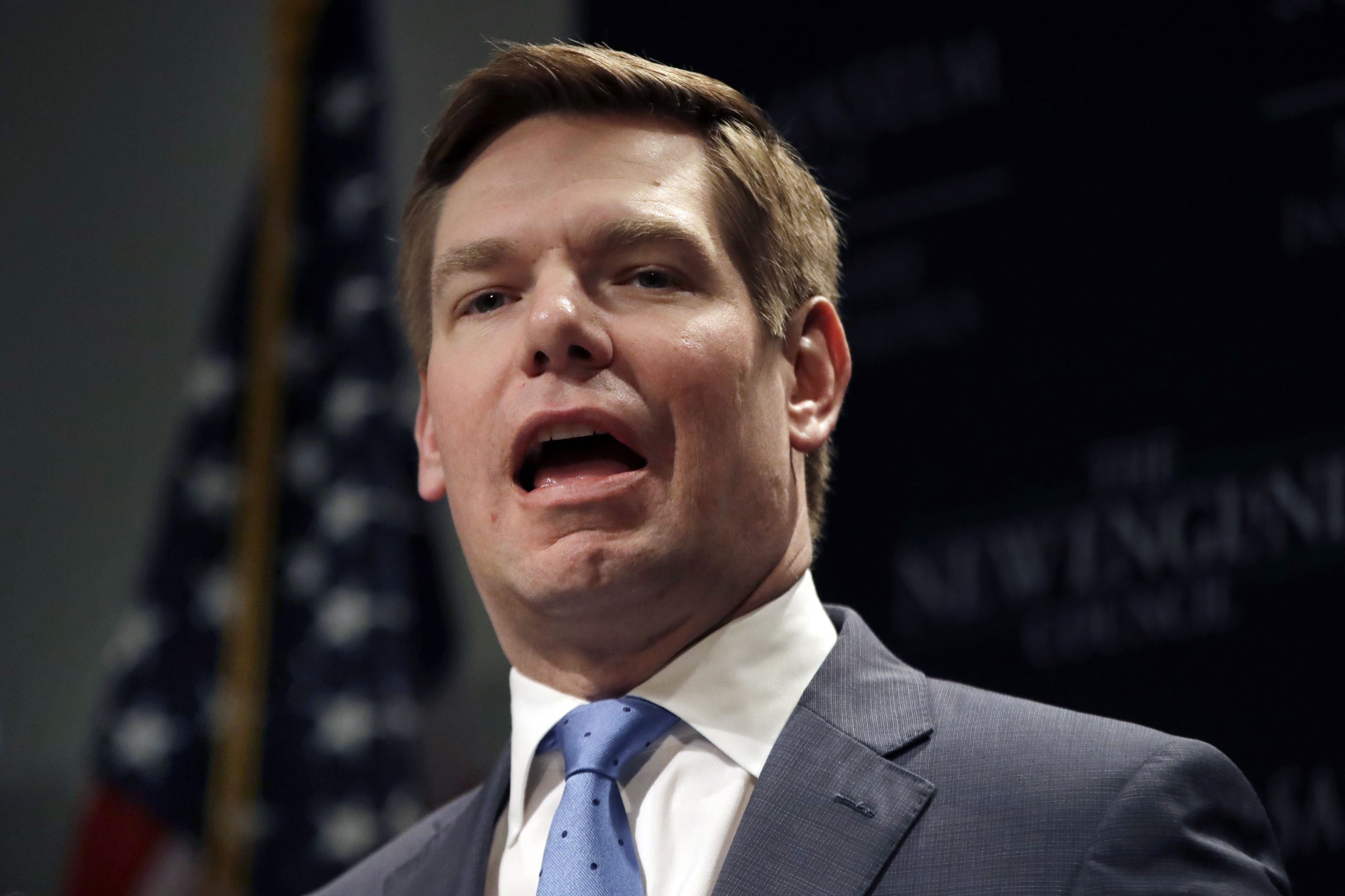In an unexpected turn of political messaging, a number of Democratic figures have recently embraced a physical fitness angle to convey strength and relatability ahead of the 2026 election cycle. What appeared to be a coordinated effort to rebrand the party’s image with a more muscular, assertive tone took center stage over the weekend, prompting both commentary and criticism across social media and political circles.
Among those participating in this newfound “strength” narrative was Rep. Eric Swalwell of California. A video posted by the congressman on social media shows him at a gym, performing a light bench press routine. While the visual was intended to send a message of hard work and seriousness about issues facing the country, it sparked an entirely different conversation.
In the video, Swalwell, 44, is seen lifting what appears to be 135 pounds—an amount not considered heavy by most gym standards. “I should be working right now,” he says to the camera. “I should be at the Capitol. I should be in a suit. Instead, Republicans sent us home because they would rather stand up for Donald Trump than release the Epstein files and stand up for victims.” The delivery and tone were earnest, but the internet’s reaction was swift and unforgiving.
Critics questioned both the purpose and the execution of the video. On X (formerly Twitter), political commentators and users alike mocked the modest weight and called the attempt at physical posturing “performative” and “ineffective.” Matt Walsh, a commentator for The Daily Wire, didn’t hold back, writing, “If I was a grown man who could only bench 135, you’d never see it on video unless someone secretly recorded it, and even then I would never admit it was me.” Another user commented, “Democrats are trying to attract white male voters. Swalwell at the gym ‘pumping iron’ won’t help.”
But Swalwell wasn’t the only one leaning into this trend. Texas Senate hopeful Colin Allred, a former NFL linebacker, also released a gym video, in which he curls a dumbbell while taking aim at President Donald Trump’s past handling of the Jeffrey Epstein case. And Cait Conley, a U.S. Army veteran currently running for Congress in New York, published a clip of herself pressing weights overhead as she spoke about the economic pressures burdening her district.
The pattern suggested a broader attempt at reshaping the public’s perception of Democratic leadership—less suited-up formality, more rugged authenticity. Party insiders have long recognized a voter gap among working-class men, particularly white males without college degrees, and it seems that part of this strategy is geared toward closing that divide.
However, many observers remain unconvinced. Critics say such videos oversimplify complex issues and reduce serious policy debates to viral-ready optics. The attempts at gym-based imagery have instead opened the door for Republicans to accuse Democrats of playing political theater while deflecting from legislative shortcomings. Some questioned the sincerity of invoking Jeffrey Epstein’s case only now, with Vice President JD Vance noting during a press appearance in Ohio that Democrats had shown little interest in pushing for Epstein file releases under previous administrations, including those of George W. Bush and Barack Obama.
It’s not the first time image crafting has been used as a political strategy, but it may be one of the more peculiar deployments. Attempting to convey toughness through fitness may work for military veterans or athletes-turned-politicians, but in the case of Rep. Swalwell, the stunt appears to have missed the mark.
Supporters of the effort argue that politicians have to evolve with the platforms they use. In an era dominated by short-form video and viral content, every gesture—every moment—is an opportunity to communicate values. “People want to see who their representatives are beyond the floor speeches,” one Democratic strategist said. “That includes how they carry themselves outside the Capitol.”
Still, others warn that substance must remain at the forefront. Voters facing inflation, housing instability, and concerns about national security aren’t likely to be swayed by fitness routines. Instead, they want clarity, action, and leadership.
Whether this gym-based messaging will continue or quietly fade after the criticism remains to be seen. What’s certain, however, is that voters are paying attention—and they aren’t pulling any punches.

Emily Johnson is a critically acclaimed essayist and novelist known for her thought-provoking works centered on feminism, women’s rights, and modern relationships. Born and raised in Portland, Oregon, Emily grew up with a deep love of books, often spending her afternoons at her local library. She went on to study literature and gender studies at UCLA, where she became deeply involved in activism and began publishing essays in campus journals. Her debut essay collection, Voices Unbound, struck a chord with readers nationwide for its fearless exploration of gender dynamics, identity, and the challenges faced by women in contemporary society. Emily later transitioned into fiction, writing novels that balance compelling storytelling with social commentary. Her protagonists are often strong, multidimensional women navigating love, ambition, and the struggles of everyday life, making her a favorite among readers who crave authentic, relatable narratives. Critics praise her ability to merge personal intimacy with universal themes. Off the page, Emily is an advocate for women in publishing, leading workshops that encourage young female writers to embrace their voices. She lives in Seattle with her partner and two rescue cats, where she continues to write, teach, and inspire a new generation of storytellers.









